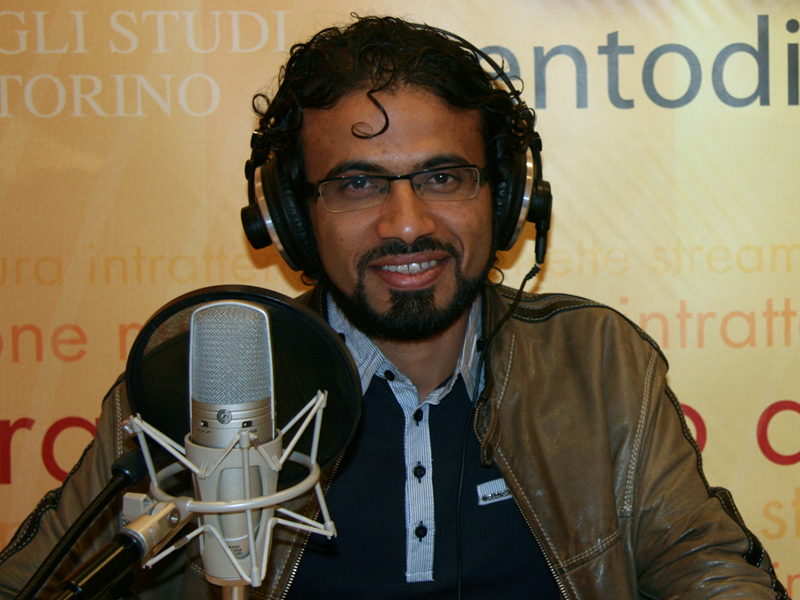في السادس من ديسمبر/ كانون الأول الماضي، شهدت رومانيا حدثا استثنائيا، حين ألغت المحكمة الدستورية العليا في البلاد الجولة الأولى من الانتخابات الرئاسية، مع إعادتها في الرابع من مايو/ أيار القادم، بسبب شكوك في تدخلات أجنبية وتلاعب عبر وسائل التواصل الاجتماعي، وخصوصا على منصة تيك توك.
بصورة مفاجئة، تصدر مرشح أقصى اليمين، كالين جورجيسكو، نتائج الانتخابات الرئاسية الرومانية، في الجولة الأولى، ويبدو أنها كانت مدعومة بحملات واسعة على منصة تيك توك فيما يصفه اليسار بالتدخلات الروسية.
وقد اكتشفت السلطات الرومانية أدلة على استخدام "تكتيكات ترويجية" مرتبطة بروسيا. هذا الحدث أثار قلقا أوروبيا كبيرا بشأن دور وسائل التواصل الاجتماعي في الانتخابات وقابليتها للتلاعب.
في السادس من ديسمبر/كانون الأول الماضي، شهدت رومانيا حدثا استثنائيا، حين ألغت المحكمة الدستورية العليا في البلاد الجولة الأولى من الانتخابات الرئاسية، مع إعادتها في الرابع من مايو/ أيار القادم، بسبب شكوك في تدخلات أجنبية وتلاعب عبر وسائل التواصل الاجتماعي، وخصوصا على منصة تيك توك.
منصة تيك توك ردت على موقعها الإلكتروني الرسمي ببيان في السابع من يناير/ كانون الثاني الماضي، بعنوان "مواصلة حماية نزاهة تيك توك خلال الانتخابات الرومانية"(1)، من خلال مجموعة من الإجراءات التي اتخذتها في الفترة من 15 إلى 30 ديسمبر الماضي؛ إذ منعت أكثر من 5.3 ملايين إعجاب مزيف وأكثر من 2.6 مليون طلب متابعة مزيفة، وبحظر أكثر من 116,000 حساب غير مرغوب فيه (سبام) من الإنشاء في رومانيا".
كذلك بينت تيك توك بعد اتهامها بالتلاعب، أنها اكتشفت 59 حسابا تنتحل صفة الحكومة الرومانية أو سياسيين أو أحزاب سياسية، واتخذت إجراءات إضافية ضد شبكة مكونة من 4453 حسابا غير موثوق به استهدفت الجمهور الروماني، وقد أبلغت عنها سابقا في 17 ديسمبر/ كانون الثاني؛ إذ حاولت هذه الشبكة الترويج لحزب "أور"/ ذهب، وبدرجة أقل للمرشح المستقل كالين جورجيسكو. من خلال 15 مليون إعجاب مزيف.
يعتقد دابو فيليب، المتخصص في قضايا التواصل الرقمي، في تصريح لمجلة الصحافة، أنه ينبغي على الاتحاد الأوروبي وصناع القرار السياسي في الولايات المتحدة التحقيق بعناية شديدة جدا في ما يحدث على شبكات التواصل الاجتماعي.
لم تكن رومانيا تواجه منصة تيك توك فحسب، بل دخل على الخط أيضا إيلون ماسك، مالك منصة إكس، حين نشر تغريدته الشهيرة «كيف لقاضٍ أن يلغي الانتخابات ولا يُعدّ دكتاتورا؟» (2)، التي وصفها فيليب تودور بالتعليق الحساس، الذي يستوجب إجراء نقاش واسع، معلقا: "نرى اليوم كيف يمكن لشبكات التواصل الاجتماعي أن تخلق أو تدمر مرشحا أو رئيسا".
لم تكن رومانيا تواجه منصة تيك توك فحسب، بل دخل على الخط أيضا إيلون ماسك، مالك منصة إكس، حين نشر تغريدته الشهيرة «كيف لقاضٍ أن يلغي الانتخابات ولا يُعدّ دكتاتورا"؟
ماسك.. هل هو قناع "الفاشية الجديدة"؟
"حزب البديل من أجل ألمانيا هو الوحيد القادر على إنقاذ ألمانيا"، هكذا كتب إيلون ماسك، في تغريدة له بتاريخ 20 من ديسمبر/ كانون الأول 2024، ولم يكتف بذلك، بل استعان هذه المرة باللغة البصرية المتحركة بدل الكتابة.
لجأ ماسك إلى تقنية البث المباشر على منصته إكس لينتقل إلى مستوى آخر من الاتصال بصورة تفاعلية؛ فقد استضاف في العاشر من يناير/ كانون الثاني الماضي (3)، أليس فايدل زعيمة الحزب اليميني، حزب البديل من أجل ألمانيا، وهكذا دعمها بصورة مكشوفة في حملتها الانتخابية لتشريعيات ألمانيا 23 فبراير/ شباط، لاختيار أعضاء البرلمان.
تقول عبير سعدي، الباحثة في الإعلام بجامعة دورتموند ، في حديث لمجلة الصحافة، إن الدور الذي أصبحت تؤديه وسائل التواصل الاجتماعي في تشكيل الرأي العام في الانتخابات الأوروبية يتزايد "ولا سيما في ألمانيا خلال مرحلة الاستعداد للانتخابات. تدخُّل الملياردير إيلون ماسك عبر منصة X لدعم اليمين، مثل استضافته زعيمة حزب البديل من أجل ألمانيا، يُذكرنا بتأثير المال والنفوذ الخارجي على العمليات الديمقراطية"، مذكِّرة بما حدث في الانتخابات الرئاسية الأمريكية 2016، حين وُثِّق تدخل خارجي (من روسيا) عبر منصات رقمية، وهذه الوقائع بنظر عبير السعدي "تُظهر كيف يمكن أن تُستغل التكنولوجيا للتأثير على اختيارات الناخبين".
لقد استطاع ماسك أن يثير كثيرا من الجدل والنقاش بشأن تدخله في الحملة الانتخابية وهو يدعم اليمين، ما جعل أنصاره أكثر ترددا على الفضاء التواصلي الرقمي. وفي نظريات الاتصال، فإن التكرار يفيد التأكيد الذي يدفع جمهورا واسعا مستهدفا بأفكار أقصى اليمين والتعامل معها من مبدأ الفرجة السياسية.
والحال أن تفاعل الناخبين مع هذه الفرجة يكون مدفوعا إما بالتأمل وإما بالتساؤل، حتى لو لم يكن مقتنعا بها في البداية، كما يوضح ذلك المهدي زبار المغربي الأصل، محلل البيانات والباحث في جامعة براندنبورغ التقنية كوتبوس-سانفتنبرغ، بألمانيا، في مقابلة مع مجلة الصحافة.
البيانات والخوارزميات وتشكيل الوعي
يرى الباحث المهدي زبار أن "الذكاء الاصطناعي أداة قوية لتحليل البيانات بناءً على سياق محدد، إذ يستخدم نظامًا يعتمد على متغيرات تحليلية تُصنف التعليقات والمعلومات. على سبيل المثال، تصنف التعليقات الإيجابية برقم (1) والسلبية برقم (0)، ما يسمح بفهم توجهات الجمهور وتحليل سلوكهم بشكل دقيق".
بفضل البيانات التي تُجمع عن المستخدمين، يمكن تحديد كيفية تفكيرهم الحالي وتوقع طرق تفكيرهم مستقبلا من خلال الخوارزميات المبنية على أرشيف بيانات كل شخص. يوضح الباحث المهدي زبار أنه يتم جمع التفاعلات مثل التغريدات، والإعجابات، ومدة مشاهدة المنشورات، وغيرها من الأنشطة التي تعكس سلوك المستخدم، وهذه البيانات تُترجم إلى أرقام يمكن قراءتها من قبل البشر والآلات، ما يسمح ببناء نماذج توقعية للتأثير والتوجيه".
لا يمكن الاستهانة بتأثير إيلون ماسك؛ فباعتباره شخصية مؤثرة بفضل نجاحاته، "تحظى منشوراته بقدرة كبيرة على جذب الانتباه والتفاعل، ويمكن لهذه الشخصيات خلق "ترند" أو تغيير اهتمامات الجمهور، ما يؤثر على من كانوا غير مهتمين أو غير معروفين ليصبحوا جزءا من الحوار والنقاش الدائر"، كما يعتقد المهدي زبار.
تجمع التفاعلات مثل التغريدات، والإعجابات، ومدة مشاهدة المنشورات، وغيرها من الأنشطة التي تعكس سلوك المستخدم، وهذه البيانات تُترجم إلى أرقام يمكن قراءتها من قبل البشر والآلات، ما يسمح ببناء نماذج توقعية للتأثير والتوجيه.
ليست الخوارزميات مجرد أدوات تقنية، بل هي كيان ديناميكي يجمع بياناتك ويستخدمها للترويج لمحتويات تناسب اهتماماتك على وسائل التواصل الاجتماعي، وتعمل على تحديد المؤثرين الذين يتماشى محتواهم مع توجهاتك الشخصية، كما في حالة إيلون ماسك مع جمهوره اليميني في أوروبا. مع مرور الوقت، "قد تجد نفسك في (غرفة صدى) حيث تتكرر عليك الأفكار والمعلومات نفسها، ما يؤدي إلى تأثير غير مباشر على قناعاتك"، كما يشرح المهدي زبار.
على سبيل المثال، خلال الحملات الانتخابية، قد يصبح المستخدم الذي يتابع محتويات تيار سياسي معين مستهدفا بعرض متكرر لأفكاره، وهنا يستحضر تجربته بوصفه باحثا في الحالة الألمانية مع أحزاب اليمين قائلا: "لقد أصبحت مهتما بوصفي مهاجرا بخطاب الأحزاب اليمينية، ليس حبا فيهم ولا إيمانا بعقيدتهم ولكن بالنظر إلى تركيزهم في حملاتهم وبرامجهم الانتخابية على قضايا الهجرة، والأمر نفسه ينطبق على كثير من المهاجرين، الذين قد يتأثرون بفعل ماكينة التكرار الذي يفيد التأكيد وترسيخ المعلومة في اللاوعي. قد تجد مهاجرا يصوت لصالح اليمين فقط تضامنا مع حالة شاذة لسلوك مهاجرين أضروا مثلا بالمرفق العمومي ليتحول إلى سلوك انتخابي".
ومن البيانات اللافتة للاستقطاب والتأثير هناك الاهتمام المتزايد بمعطى الموسيقى المصاحبة للمحتوى البصري في الحملات الانتخابية بألمانيا أو رومانيا أو غيرها، ويوظفها اليمين للاحتفاء بالقومية والقوة الوطنية؛ إذ تخلق تأثيرا عاطفيا عميقا عند تكرارها في مقاطع متعددة. يسمح ذلك بسهولة تمرير الرسائل السياسية وخدمة أجندة اليمين.
من البيانات اللافتة للاستقطاب والتأثير هناك الاهتمام المتزايد بمعطى الموسيقى المصاحبة للمحتوى البصري في الحملات الانتخابية بألمانيا أو رومانيا أو غيرها.
بالنسبة للباحث الأكاديمي ومحلل البيانات المهدي زبار "فإن وسائل التواصل الاجتماعي أصبحت مساحة لنشر المعلومات سريعا، ولكنها أيضا تشكل تحديا للديمقراطية عندما تُستغل من قبل مؤثرين غير ملتزمين بالقيم الأخلاقية أو الديمقراطية". ولمواجهة هذه التحديات، "يجب على النخب السياسية والديمقراطيين التجاوب بفاعلية مع التكنولوجيا الحديثة، بتبني الأدوات الرقمية والعمل على منصات التواصل الاجتماعي بالكفاءة نفسها التي يستخدمها المؤثرون غير الأخلاقيين".
أضحت الديمقراطيات الأوروبية بما فيها بريطانيا (4)، مهددة باقتصاد التكنولوجيا الحديثة وتوجيه الناخبين نحو اختيار اليمين مباشرة، كما تم رصد ذلك في الحالتين: الرومانية والألمانية.
انتبهت المفوضية الأوروبية -التي لم تسلم هي الأخرى من تأثير إيلون ماسك- إلى مثل هذا التأثير (5) على مستوى الحالة الأولى خلال ديسمبر/ كانون الأول الماضي عقب إعلان نتائج الدور الأول للانتخابات الرئاسية في بوخاريست، ففتحت تحقيقا رسميا مع تيك توك بشأن انتهاكات محتملة لقانون الخدمات الرقمية خلال اقتراع الرئاسيات برومانيا بشبهة "تدخلات أجنبية".
إضافة إلى ذلك، أصدرت المفوضية أمرا لـتيك توك بالحفاظ على البيانات المتعلقة بالانتخابات الرومانية للتحقيق في أي تلاعب محتمل في العمليات الانتخابية.
هكذا، تعتقد عبير سعدي، الباحثة في الإعلام بجامعة دورتموند، أن التدخل في الانتخابات بأوروبا "يطرح تساؤلات عن أخلاقيات دعم أجندات سياسية في دول لا تخص الداعمين، ويؤكد أهمية جهود الاتحاد الأوروبي لضمان نزاهة العمليات الانتخابية ومواجهة التلاعب الرقمي".
المراجع
-
TikTok. "Continuing to Protect the Integrity of TikTok During Romanian Elections." TikTok Newsroom, January 7, 2025. Accessed February 11, 2025. https://newsroom.tiktok.com/en-eu/continuing-to-protect-the-integrity-of-tiktok-during-romanian-elections.
-
Musk, Elon (@elonmusk). "How can a judge cancel an election and not be considered a dictator?" X (formerly Twitter), December 20, 2024. Accessed February 11, 2025. https://x.com/elonmusk/status/1870146128836211113.
-
Musk, Elon (@elonmusk). "Live conversations on 𝕏 with @Alice_Weidel in 5 days! Will take questions from the audience." X (formerly Twitter), January 4, 2025. Accessed February 11, 2025. https://x.com/elonmusk/status/1875575420269294075.
-
Musk, Elon (@elonmusk). "This is undemocratic. The EU parliament should vote directly on matters, not give up authority to the EU commission." X (formerly Twitter), November 27, 2024. Accessed February 11, 2025. https://x.com/elonmusk/status/1861797386693353706.








































